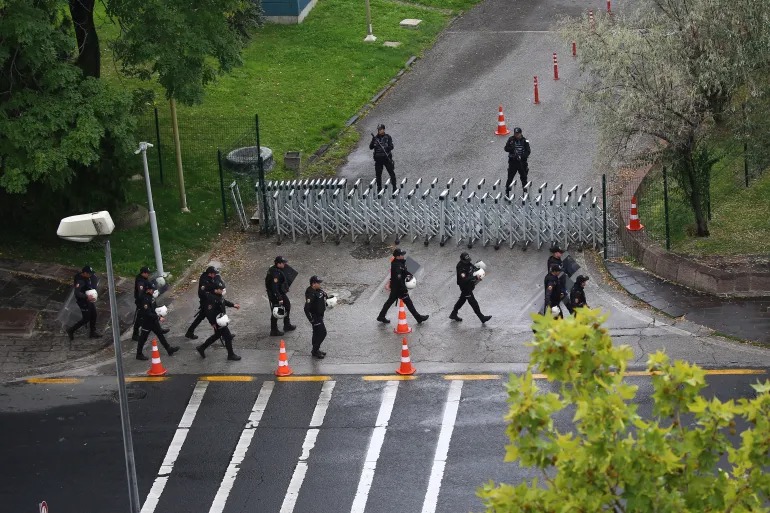In a swift and decisive response to a suicide attack on a government building in the capital, Ankara, the Turkish interior ministry has announced that Turkish warplanes have carried out air strikes on Kurdish targets in northern Iraq. The attack in Ankara left two police officers injured and was claimed by the banned Kurdistan Workers’ Party (PKK). The Turkish military intensified its air strikes on PKK bases in various regions of northern Iraq, including Gara, Hakurk, Metina, and Qandil. This development marks a significant escalation in the ongoing conflict between Turkey and the PKK, a group designated as a terrorist organization by Turkey, the United States, and the European Union.
A Swift and Decisive Response
The Turkish interior ministry wasted no time in responding to the suicide attack that rocked the capital, Ankara. Hours after a suicide bomber detonated an explosive device near the entrance of the interior ministry building, injuring two police officers, the Turkish military launched a series of air strikes on PKK targets in northern Iraq. The swift action demonstrates Turkey’s determination to combat terrorism and protect its citizens from further threats.
PKK Claims Responsibility
A news agency affiliated with the PKK claimed responsibility for the suicide attack in Ankara. In a statement, the ANF news agency revealed that the PKK had planned the bombing to coincide with the reopening of the Turkish parliament. The attack was attributed to a group linked to the PKK known as the “Immortals Battalion.” The PKK’s involvement in the attack underscores the group’s ongoing insurgency and its efforts to destabilize the region.
International Reactions and Security Measures
Following the suicide attack, international leaders and organizations expressed their condemnation and support for Turkey’s fight against terrorism. European Council President Charles Michel strongly condemned the “terrorist attack,” and EU Commissioner for Enlargement Oliver Varhelyi reiterated the EU’s backing for Turkey in its battle against terrorism. Meanwhile, in Ankara, security measures were tightened around key government buildings, including the parliament and the interior ministry. Workers rushed to repair damages caused by the explosion, and a Turkish flag was prominently displayed at the ministry gate to signify solidarity and territorial integrity.
Shortly after the suicide attack in Ankara, Turkey swiftly launched air strikes on PKK targets in northern Iraq. These raids, which destroyed approximately 20 PKK targets, including caves, shelters, and depots, were a direct response to the bombing. The PKK, designated as a terrorist organization by Turkey, the United States, and the European Union, claimed responsibility for the attack, revealing that it was meticulously planned to coincide with the reopening of the Turkish parliament.
In the wake of the attack, international leaders and organizations promptly expressed their condemnation and support for Turkey’s counterterrorism efforts. Meanwhile, in Ankara, security was reinforced around critical government buildings, and repair work commenced at the interior ministry to address the damage caused by the explosion.















